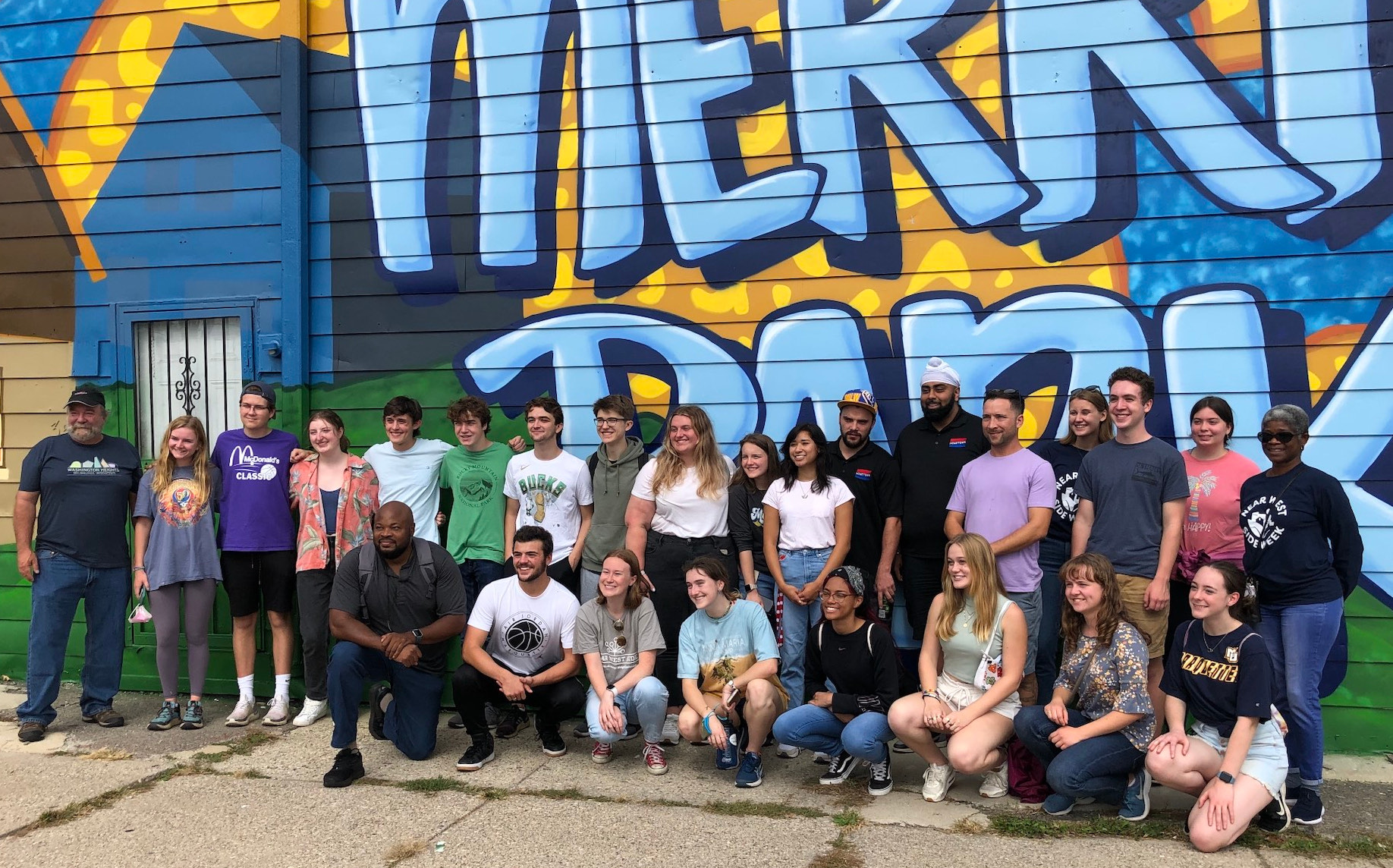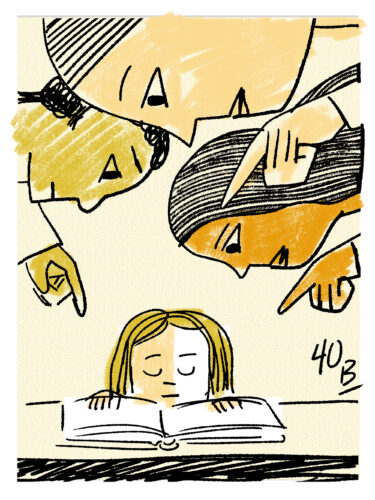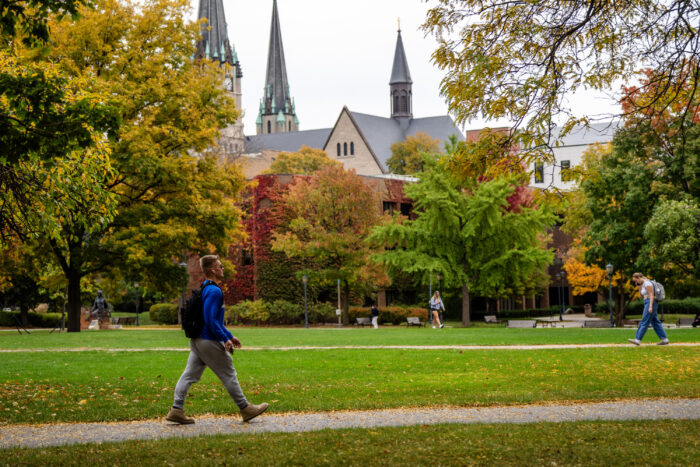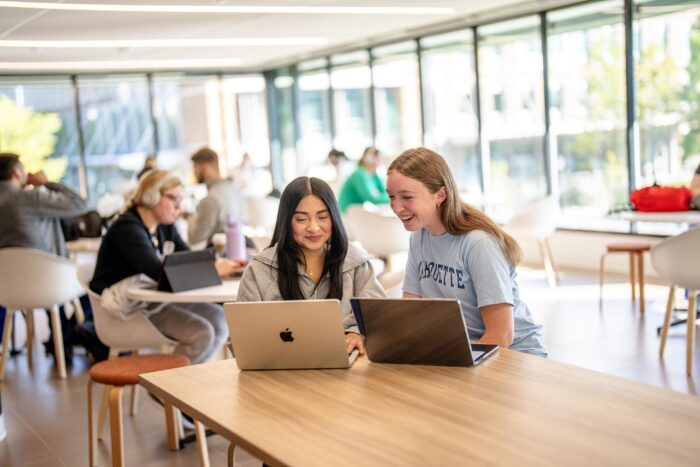An Action Research Team made up of Marquette students and faculty is working to enhance the Honors Program
By Jill Nuelle, communication intern in the Office of Marketing and Communication
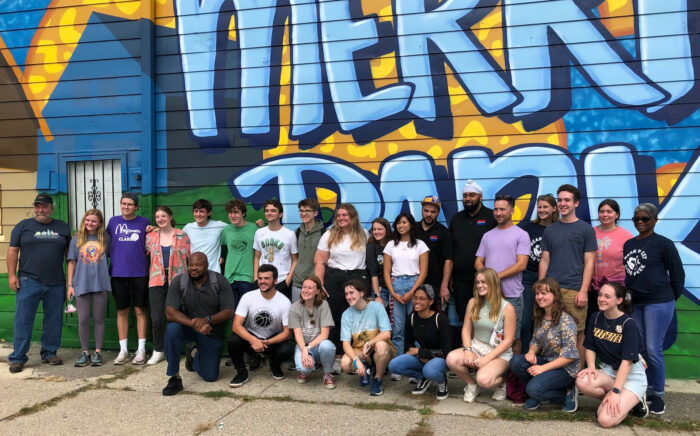
In a partnership that is in many ways unique to higher education, a dedicated team of students and faculty have worked over the past two years to enhance the Marquette University Honors Program.
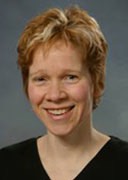
Dr. Amelia Zurcher, director of the Honors Program and associate professor of English in the Klingler College of Arts and Sciences, connected with Dr. Nick Curtis, director of assessment in the Office of Assessment, to develop a new set of outcomes for the Honors Program. Curtis suggested the innovative idea of including students as full partners in the development process. Soon, an “Action Research Team” of seven students and four faculty members began to create a list of best outcomes and values for the program.
“We would not have been able to do it without the students. The success of the project can be attributed to their partnership,” Curtis says.
After researching peer institutions’ honors programs and thoughtfully considering the value that a 21st century, Jesuit urban honors program could bring to students’ education, the team decided that at the program’s culmination, students should be able to explain how social justice has permeated their entire Marquette experience, articulate the Honors Program values, work across disciplines to address a social problem that’s important to them and express a strong sense of belonging in the Honors Program.
Zurcher describes the project as one of the most rewarding of her career.
“Removing the usual hierarchy between faculty and students created the opportunity to focus on students’ interests and their hopes for their education in a really authentic way, and to build a program that strives to be truly student-centric,” she says.
Dr. Conor Kelly, associate professor of theology in the Klingler College of Arts and Sciences and director of the Marquette Core Curriculum, was one of the faculty members on the Action Research Team. He echoes his colleagues’ view that having students involved led to a broader vision and more ambitious expectations.
Kelly also says the university’s Jesuit mission and core values contribute to the program’s goals.
“The original idea of Jesuit education was to get the leaders of a given society and then transform society top-down,” Kelly says. “That’s akin to what I think Marquette is still trying to do. And certainly what the Honors Program is trying to do by forming students to be leaders who can transform society.”
One student on the team is Ashley Sanchez, a senior honors student studying biological sciences and Spanish. She got involved with the project her sophomore year and thought the task of creating new outcomes for the program by focusing on educational equity and inclusion created an important opportunity for her — a minority first generation student — to have her perspective heard and acknowledged.
“It wasn’t just the faculty coming up with outcomes and then the students giving feedback,” Sanchez says. “We were all exchanging ideas as equals. Even sitting at the same table with professors, that was something I didn’t even know was possible as a sophomore.”
Sanchez says a part of the process she really enjoyed taking part in was the annual IUPUI Assessment Institute’s academic conference, where she and fellow team members participated in a presentation about their work on the Action Research Team.
Sanchez is grateful to have been a part of what she says was an incredibly rewarding experience.
The Action Research Team’s new Honors Program assessment plan asks students to share reflections throughout their four years in a portfolio to demonstrate their engagement with the new Honors Program outcomes. This annual assessment will ensure that student voices and student learning remain at the center of program development.
